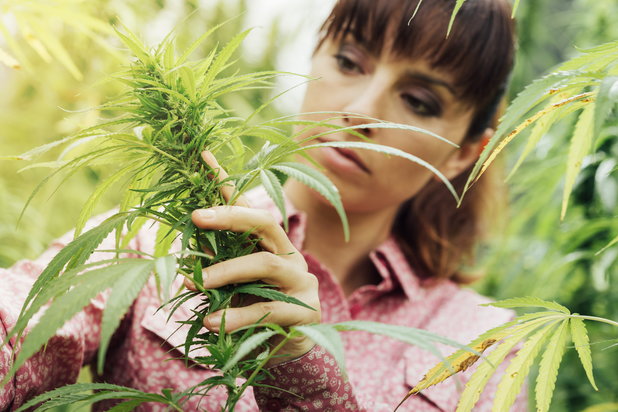Proposition 64 was voted into law by the residents of the state of California on Nov. 8, 2016. The proposition was introduced as a blanket law for recreational marijuana use with hopes that legalizing the drug would bring less incarceration and high revenue from the sale of marijuana to the legal age public.
The Breakdown
Marijuana legalization definitely comes with major changes in California, but it’s not a free-for-all pass for a statewide smoke out. Here’s what Proposition 64 really looks like for the state and its inhabitants.
- It allows people ages 21 and older to possess and use marijuana for recreational purposes.
Even though it is now legal to smoke recreational marijuana, just like tobacco, it is not allowed in public areas or other places where tobacco isn’t allowed. All retailers must also obtain state and applicable local licenses. Additionally, while municipalities have no authority to ban all sales of the drug, they may still regulate how it is used in their jurisdiction [1].
- There are penalties for those under the age of 18 and others who break the law.
If an individual under the age of 18 is convicted of marijuana use or possession, he or she will have to attend a drug education program or counseling and complete community service. Anyone who is caught selling the drug without a license will be subject to a maximum of 6 months in the county jail, a $500 fine, or both. On the contrary, people who are currently serving sentences or have criminal records for charges that have been made legal under Proposition 64 are now eligible for resentencing [1].
- It creates two new taxes (for now).
Proposition 64 has created two new taxes: a cultivation tax calculated per ounce of flowers or leaves, and a 15 percent tax on retail price. The revenue from these taxes will first go towards the costs of enforcing this law, and the rest towards drug research, treatment, health and safety grants, youth programs, and preventing environmental destruction from illegal marijuana growers. These taxes will be adjusted for inflation starting 2020 and local government has been authorized to tack on additional taxes [1].
Primary Concerns
Not surprisingly, opponents of Proposition 64 and many people in the general public have some issues with the new law. Here are some of their biggest concerns.
- It lacks a standard public health safety warning.
For one, the proposition lacks the same public health safety warning that alcohol and tobacco have. Prop. 64 opponents feel strongly that marijuana sales conducted by a business should have a public health and safety warning that’s visible to the general public. The warning should be issued by all local and state government bodies associated with regulating the use and sale of the drug. A few organizations are already working hard to see that, at the very least, a mandated statement is released by local and state government officials.
- Local municipalities will not benefit from the revenue.
Opponents of Prop.64 say that local municipalities, unless they apply for grants, will never see a penny of the money. Local law enforcement agencies already say that their cost to enforce Proposition 64 are set to increase (or at the very least stay the same), meaning they may not even benefit from the expected revenue. Critics also worry that besides burdening already strained law enforcement budgets, drug prevention education and treatment programs may also not see the amount of money that the proposition has promised.
- It does not properly address the scientific pitfalls of recreational marijuana use.
Scientific research has shown a definite link between marijuana use and mental health issues such as depression, anxiety and schizophrenia. Scientists have also identified and associated a gene linked to marijuana use and psychotic episodes in certain individuals. And as with any drug, there's also possibility of developing dependence. Opponents say Proposition 64 is woefully ill-equipped in addressing the scientific pitfalls of recreational marijuana use and what impact legalization may have on the public, especially for the youth. If you or someone you know need extra support quitting marijuana, here's a list of nearby treatment centers.
Going Up in Smoke?
The real impact of Proposition 64 remains to be seen. For many of us, there seems to be more questions that can only be answered in time. Is California educated and realistic enough on what they are truly facing with the legalization of recreational marijuana or are they having a "pie in the sky" moment? Will the state uphold the standard of enforcement and implementation for community health programs as Proposition 64 originally promised? What kind of legal loopholes will get exploited?
Perhaps we’ll all have to just hold on tight and stay tuned.
References:
1. Ballotpedia. “California Proposition 64, Marijuana Legalization (2016)”. Retrieved online on January 2017 from https://ballotpedia.org/California_Proposition_64,_Marijuana_Legalization_(2016)








